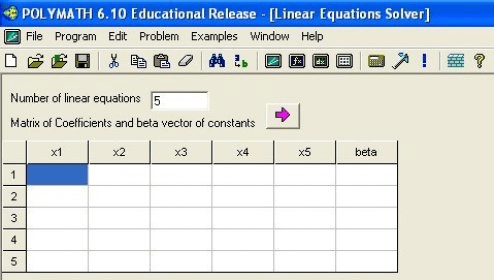
Later they can start accepting POLY as fee from investors who wish to get verified. KYC Provides: They initially pay a fee fixed in POLY to join the network.Developers: They earn POLY for creating smart contracts for the STO and token in general.Issuers: They post bounties in POLY token to encourage legal delegates and developers to bid on providing services towards the token issuance.POLY is used as an economic unit for all operations on Polymath platform and has its own utility in the following processes: Instead, it has its native token POLY, an ERC20 token thriving on the Ethereum blockchain. Polymath doesn’t have its own blockchain. In short, Polymath is making the technical challenges and legal challenges of launching a security token easier and more systematic to implement. Here is a workflow diagram explaining who they all work in tandem with to achieve Polymath’s goal: Legal Delegates: The Legal team who consults Issuers.
POLYMATH SOFTWARE FREE VERIFICATION
KYC Providers: Who check for accreditation and does verification of investors. Investors: Accredited investors who want to invest in security tokens. 
 Developers: Who makes smart contracts for security tokens. Issuers: Who wants to issue securities on the blockchain. Mainly, these are the participants in the Polymath’s ecosystem that delivers issuance of security tokens by working in a collaborative manner: Polymath makes it easy for all the participants to issue security tokens in a collaborative way, thereby saving time and money for the business that would otherwise be wandering through the jungle of regulation and deregulation. Here is a simplistic video explainer of Polymath.Īs you just saw in the video, Polymath makes it easy for businesses and issuers of financial products to launch security tokens on the blockchain, thus helping them bridge the gap between traditional securities and blockchain-based asset ownership and investment opportunities. Sensing this problem, Polymath, a blockchain protocol for launching specifically security tokens has been conceived. Tough time because the process is cumbersome and unclear, given the SEC is dealing with such tokens for the first time. Moreover, businesses and cooperations that have tried to get regulated by the SEC for launching security tokens have had a tough time. We all know ICOs or token sales are the new way of financing but many ICOs or token sales have been flagged as securities by the US SEC. Polymath Token Supply & Polymath Market Cap. So we will discuss it based on the following points: Here is A Look At The Top 5 Security Token Issuance Platforms. Today’s agenda, however, is to discuss Polymath, a security token issuance platform that we have covered briefly on CoinSutra in the past. Understanding The Difference Between Security Tokens & Utility Tokens. What Are Security Tokens & Why Is The Market Bullish About It?. So far, we have covered the security tokens scene in detail on CoinSutra so I am not going to get into it again but I will leave you with our exclusive coverages:
Developers: Who makes smart contracts for security tokens. Issuers: Who wants to issue securities on the blockchain. Mainly, these are the participants in the Polymath’s ecosystem that delivers issuance of security tokens by working in a collaborative manner: Polymath makes it easy for all the participants to issue security tokens in a collaborative way, thereby saving time and money for the business that would otherwise be wandering through the jungle of regulation and deregulation. Here is a simplistic video explainer of Polymath.Īs you just saw in the video, Polymath makes it easy for businesses and issuers of financial products to launch security tokens on the blockchain, thus helping them bridge the gap between traditional securities and blockchain-based asset ownership and investment opportunities. Sensing this problem, Polymath, a blockchain protocol for launching specifically security tokens has been conceived. Tough time because the process is cumbersome and unclear, given the SEC is dealing with such tokens for the first time. Moreover, businesses and cooperations that have tried to get regulated by the SEC for launching security tokens have had a tough time. We all know ICOs or token sales are the new way of financing but many ICOs or token sales have been flagged as securities by the US SEC. Polymath Token Supply & Polymath Market Cap. So we will discuss it based on the following points: Here is A Look At The Top 5 Security Token Issuance Platforms. Today’s agenda, however, is to discuss Polymath, a security token issuance platform that we have covered briefly on CoinSutra in the past. Understanding The Difference Between Security Tokens & Utility Tokens. What Are Security Tokens & Why Is The Market Bullish About It?. So far, we have covered the security tokens scene in detail on CoinSutra so I am not going to get into it again but I will leave you with our exclusive coverages: 
Crypto tokens that pay dividends, share profits, pay interest or invest in other tokens or assets to generate profits for the token holders are deemed as ‘security tokens’.

Security tokens are crypto tokens issued to investors in a token sale or ICO for the exchange of their money. It started with protocol coins like BTC, ETH, NEO, etc., and then moved onto utility tokens such as Fatcom.Īnd now it is the time for security tokens. So much so, that if you haven’t heard of them yet, you probably are missing on a lot. ‘Security Tokens’ are buzzing in the cryptosphere.








 0 kommentar(er)
0 kommentar(er)
